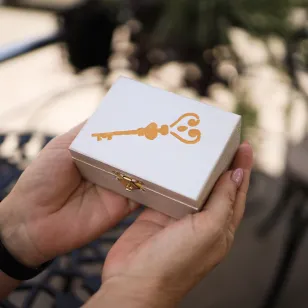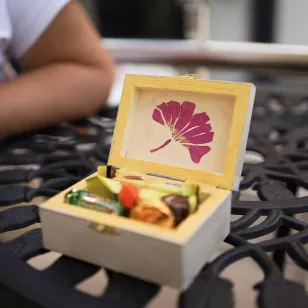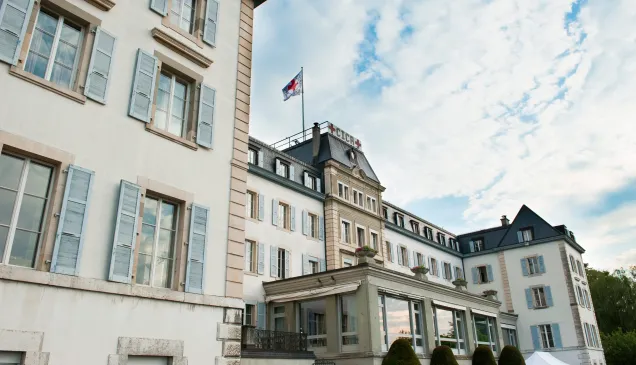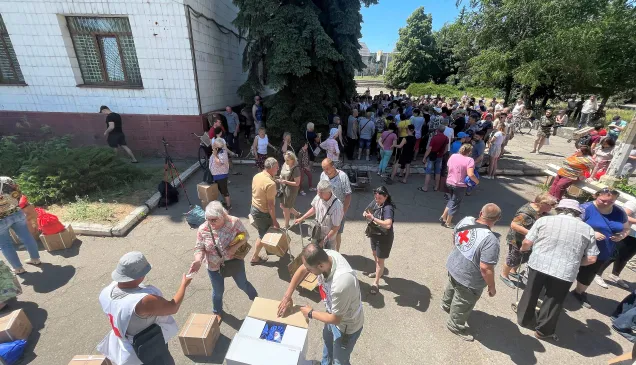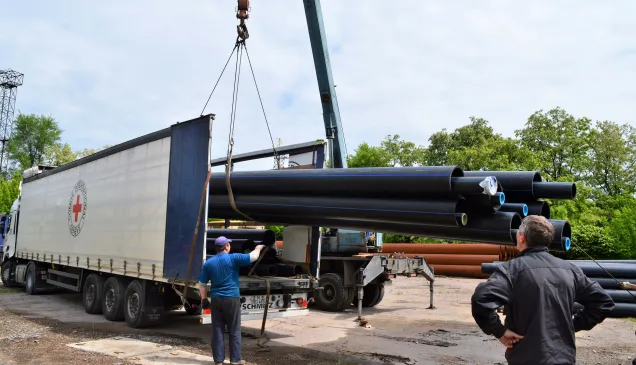Ukraine: Supporting families living with uncertainty
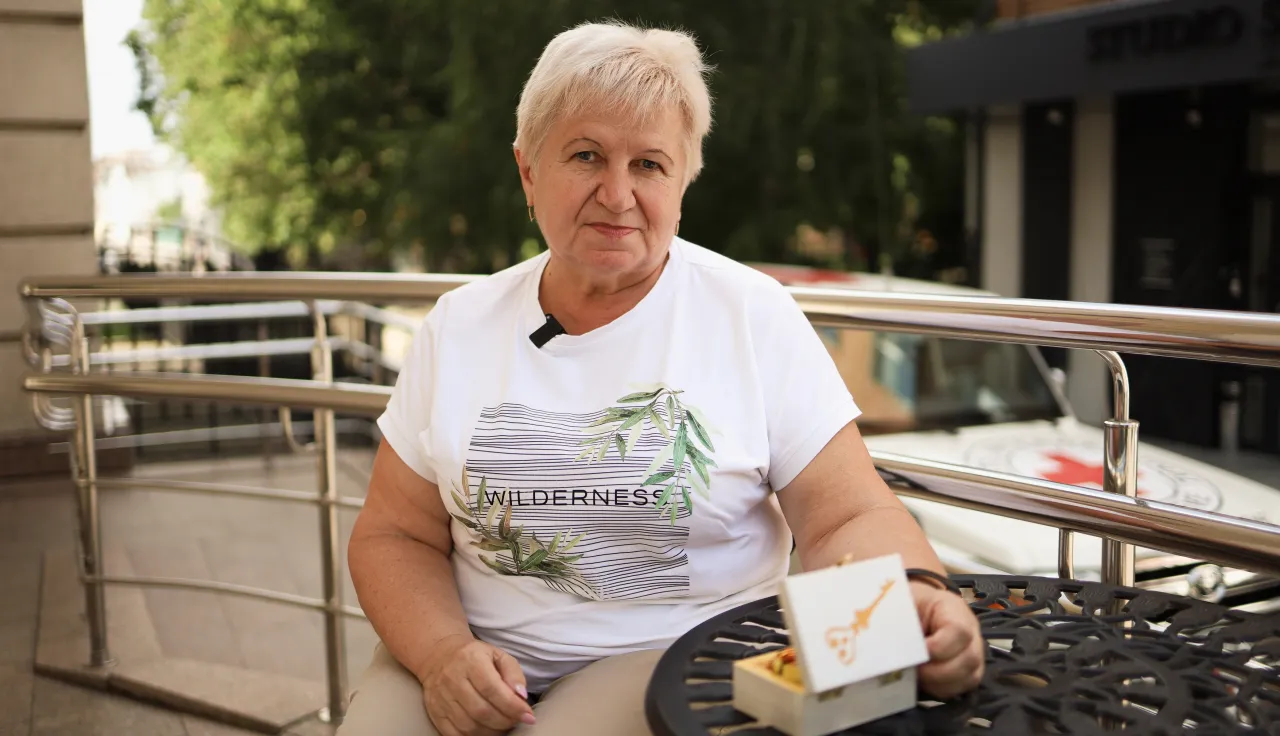
Thousands of families across Ukraine endure uncertainty about the fate of their loved ones – missing or captured since the beginning of the armed conflict. For these families, each day brings both hope and fear.
Liudmyla and Larysa are from different towns in the Poltava Region of Ukraine and under ordinary circumstances their paths may never have crossed. Tetiana, a psychologist who used to work with children, might also have remained a stranger but for the escalation of the conflict that changed their lives.
The three women were brought together by a program supported by the International Committee of the Red Cross (ICRC) that provides psychosocial support to families of the missing.
Liudmyla waits for news of her son in captivity. Larysa is searching for answers about her son, who disappeared in the summer of 2024. Tetiana has become a source of strength for both – and for other families who live with similar uncertainty about the fate of their loved ones.
Liudmyla
“Words cannot describe it,” says Liudmyla, recalling how she felt upon learning her soldier son was likely captured. “At first there was fear, after all, it’s your child. And then tears.”
Her son went missing during a combat mission in May 2023. Months later, authorities classified him as ‘probably captured’. “We haven’t lost faith that he’s alive and will come home soon,” she says. “Life wouldn’t be worth living without that faith.”
Now Liudmyla smiles, though her hands still tremble slightly. She admits it took a long time fraught with silence and confusion to reach this point.
Two years ago, she began meeting with a psychologist who supports families of missing and captured persons.
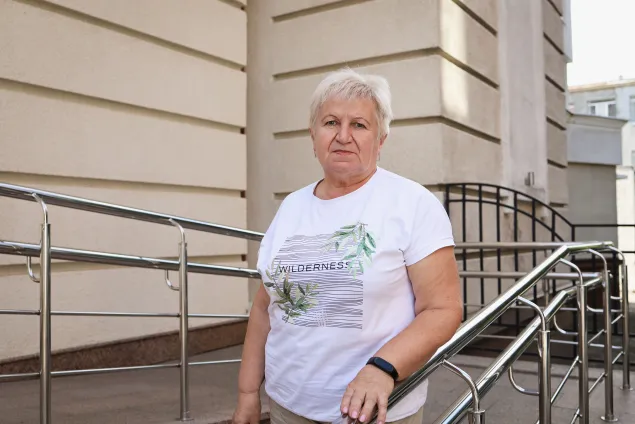
Liudmyla in Poltava Region.
“Tetiana, the psychologist, pulled me out of depression,” she says. “The ICRC called and invited me to a meeting, then offered to let me work with Tetiana in Poltava. She became like a guardian angel to me. Back then, I couldn’t do anything. What did I have? Only tears.”
Over ten sessions, Liudmyla learned to understand her emotions, find strength within herself, and support those around her.
“Tetiana showed me one exercise, then another, and little by little I learned to distract myself, to smile, and even to cry properly,” she says. “That’s when you stop at the right moment. Yes, to cry — because you can’t do without it.”
Psychologist Tetiana, who supported Liudmyla through her hardest moments, explains that such consultations help families recognize and manage the emotions that come with uncertainty. “When you lose contact with a loved one, there won’t be a quick result,” she says. “Our task is to give people the tools and skills to help themselves and those around them cope.”
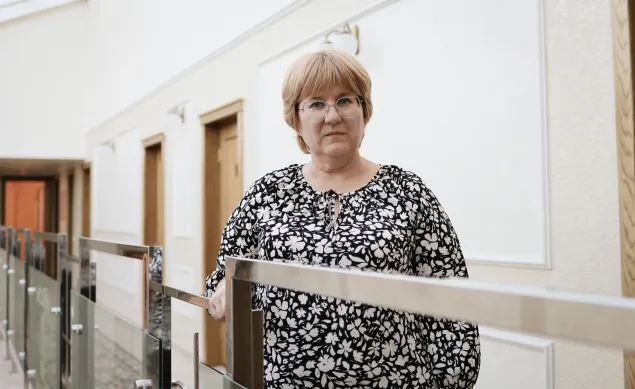
Tetiana, a psychologist who works to support families waiting for news of captured or missing loved ones.
Tetiana began her career as a child psychologist but today works mainly with families of missing and captured persons. Trained by the ICRC in 2023, she still receives guidance from the organization’s team. “What I do now is truly needed,” she says. “When families ask how I’m doing during difficult times in my city, it’s very touching because it is all about providing support to others.”
A year after finishing her individual sessions, Liudmyla joined an ICRC support group for families of the missing. For more than two months, families waiting for their loved ones gathered in a safe space where everyone understood each other even without having to speak. They could share their fears and pain, knowing they would be heard.
“In the group, everyone shared the same grief,” she says. “But over time, we provided real support to one another. When I spoke, I knew I’d be understood. It’s hard to talk to people outside, but there – I was among those who truly get it.”
Today, Liudmyla’s days are fuller. She spends more time with her five granddaughters, paints and makes time for herself. “I know my son would have praised me for this,” she says.
When we met, Liudmyla was sharing her experience with families just beginning their psychological support journey: people facing the same uncertainty and anxiety she once did.
“The main thing is not to shut yourself off,” she says. “At first, I didn’t want to talk to anyone. I forced myself to speak even with my relatives. But after working with a psychologist, I realized communication is necessary: there are always people who can support you.”
During one session, Liudmyla created a small decorative box: on top, she painted a golden key; inside, a flower.
“The box is our home, and the key is for my son,” she explains. “When he comes back and opens it, he’ll see that we’ve been waiting for him. The flower has eight petals, that’s our family: me, his wife and daughters, and his sister with her three girls. We’re all waiting for him.”
Larysa
“He’s always on my mind. I pray for him because what else can I do?” says Larysa, whose 26-year-old son Dmytro went missing in the summer of 2024. “We have an icon of the Mother of God holding the baby Jesus. I told my daughter to place Dima's photo on the other side of the icon, so that she can support him too.”
When the ICRC invited her to a support group, Larysa decided to join. “The ICRC called me and said that they support people who are waiting… I thought: I need to go there, too,” she recalls. “At times, it was hard to share my thoughts or feelings because it still hurts so much. But everyone understood – everyone in the group was going through the same thing.”
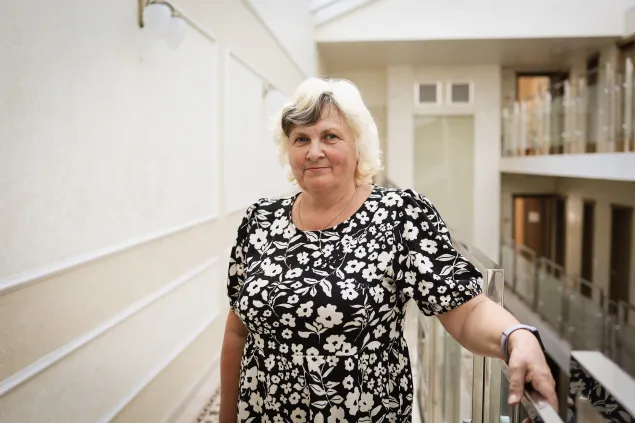
Larysa
In her daily life, Larysa is not used to sharing her worries: people around her often don’t understand or start showing pity, which only makes her uncomfortable. Among the participants of the support group, she found like-minded individuals – those with whom she could speak openly or even remain silent, yet still find understanding.
“While we were still all gathering for the support group, one participant’s son returned from captivity. You can’t imagine how happy we all were when she told us. It was such an explosion of emotions: we cried together with her, asked about every little detail, and waited for the moment when she would finally see him. That shared joy and empathy remain to this day.”
Each of them, Larysa says, still waits every day for such news, battling the silence. During her time in the group, she learned ways to cope with the anxiety that had followed her for months since Dmytro went missing. She mastered self-help methods to reduce stress and now shares them with her daughter, who misses her older brother deeply.
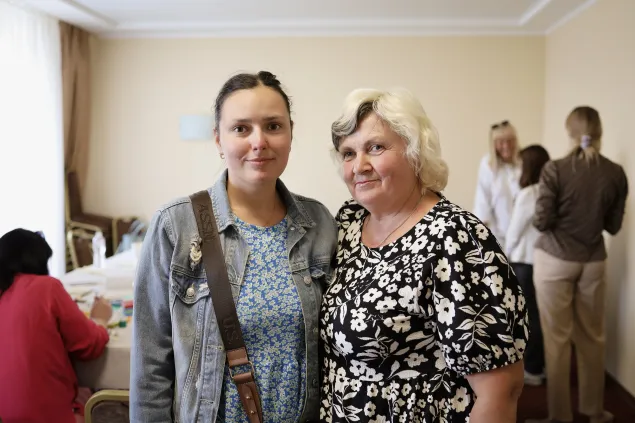
Larysa and her daughter.
“Some day things must get better,” Larysa says. “I will still wait for my son. That’s my fate. But I must be strong, and I will be – no matter what.”
In Ukraine, we work to strengthen the capacity of health workers and emergency responders, to help them provide emotional support to those affected by conflict: civilians, ex-combatants, families of those taken captive or unaccounted for and people with disabilities. We support hospitals – ranging from Kyiv to Odesa to Kharkiv – to support psychologists in their own psychological care for people. We support others – like the police, NGOs, the Ukrainian Red Cross Society and State Emergency Services – to provide emotional support in and out of crisis. We also run emotional care sessions to help strengthen the resilience of frontline and emergency workers.

